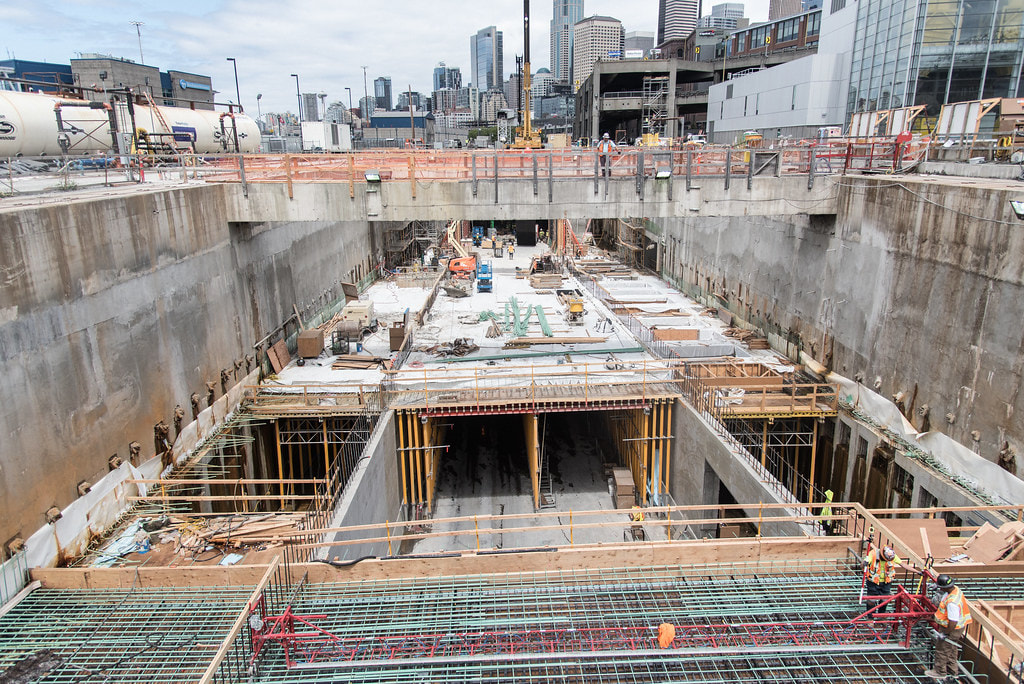|
by the Reverend Dr. Warren Crews The opening words of Isaiah, chapter 40, in today’s lesson from the Hebrew scriptures tell of a conversation in the heavenly council about how miserable the Hebrew people are living in exile in Babylon as a punishment for their sins. God suddenly announces Israel has been punished enough. It is time to restore Israel. God’s opening words to the council, “Comfort, o comfort, my people” has been immortalized by Handel’s Messiah. In chapter 40, three different members of the heavenly council respond to God. The first one commands the construction of a great highway in the wilderness in which every valley shall be lifted up and every mountain and hill made low, and the rough places made plain. He is imagining a new direct road between Babylon and Jerusalem, as opposed to the very long northern detour around the great Syrian desert wilderness. I encountered these words from Isaiah at an early age, because my father worked for a company that provided the great earth moving equipment necessary to build a highway. For one special highway, our father took us out to watch the equipment leveling off and straightening a highway, which eventually became the Turner Turnpike between Tulsa and Oklahoma City, which became part of Interstate 44. My family’s home town was 90 miles from Tulsa on the way to Oklahoma City. The old highway went up and down and all around that hilly country. Inevitably we would get behind farm equipment moving ever so sloowly. It was very dangerous to try to pass anything on that road, so it took us about three hours to make the trip. My brother and I were bored to tears without any electronic gadgets to entertain us. One thing, however, did catch our attention. There were small advertising signs on the farm fences, spaced out to deliver a message. One was particularly scary. It read: “Do you—know—where you—will spend—eternity?—roasting—in Hell?—if so—you need—to attend— (such and such a fundamentalist church)." That was so, so different from the message of God’s unconditional love for us that we were hearing in our church. So, those long trips were an uncomfortable ordeal that I still vividly remember. Once the turnpike was finished a new world opened up. We were able to zip down the highway in half the time. No more slow farm equipment, no more scary signs trying to scare hell into us! It was still a boring trip, but now we could read a book or take a nap. When we heard this passage read in church, we thought, “ahah, God is promising to build an interstate highway between Babylon and Jerusalem. That indeed would have been very comforting and exciting news to the Jewish exiles living in Babylon! Not long afterwards the Persian emperor Cyrus did allow the Jewish people to return to Jerusalem and rebuild it. However, by the time of the time of Jesus in first century AD, that heavenly command to comfort God’s people rang very differently. The Gospel of Mark begins not with the birth story of Jesus, but with God once again announcing a new plan for God’s people: “See I am sending my messenger ahead of you, who will prepare your way; the voice of one crying out in the wilderness ‘Prepare the way of the Lord, make his paths straight.” That messenger was John the Baptist, who would challenge all the Jewish people to repent of their sins and be baptized. John in turn refers to the coming of an even more powerful agent of God, one who will baptize the Jewish people with God’s Holy Spirit. Since John the Baptist is also the center of the gospel lesson for next Sunday, today I am going to focus today instead on the opening command of God, “Comfort, comfort my people, says your God.” First, what are the words of comfort that God’s messengers are to give to our people, who are suffering from a pandemic, from racial unrest and from a country anxious about our seriously unstable political situation? Perhaps a good way to start is to deal with another basic question: what do you and I find comforting when we are stressed out? Do we binge out on comfort food, comfort alcohol, or comfort drugs? Do we work even harder at our jobs or watch more or more old television programs? This is a good question I have had to ponder because my wife Mary Jane and I are just emerging from a very stressful month of November when we bought a new smaller home, and sold our old larger house. We have struggled mightily to downsize 24 years of accumulated stuff. What have been the words and actions that have comforted us?  "Moving Day" by starmanseries is licensed under CC BY 2.0 "Moving Day" by starmanseries is licensed under CC BY 2.0Several things we learned quickly in our month of seemingly endless challenges was that we were not in control. Whenever we solved one problem, two new ones appeared. Several weeks before closing on the sale we were beginning to despair that we could do it all. It was hard, but we had to learn to let go and go with the flow, which was the constant advice of our family, our friends and my spiritual director. The second learning was that when we were open to receiving help from others, all kinds of people, including total strangers, stepped in to help. Miraculously, we got things done with one day to spare. Trusting the good will of others was a great source of comfort. But, where was the God-dimension to all of this? After saying to a number of people, some of whom we had never met before, who stopped to carry off much of our large pile of giveaways that they were our angels, then it dawned on us that they were in fact part of the squad that God provided to comfort us in our hour of need. So, what do we think will be the lasting impact of our move on our spiritual lives? The answer came to me reading Psalm 17 in Morning Prayer last week. The psalm is a lament about what sad shape the psalmist is in. I assumed that he probably was speaking for the Jewish exiles in Babylon. He asks God to punish his enemies and reward the faithful. The psalms are full of that scenario. But, what caught my imagination was the last verse: the psalmist is musing about what it will be like when God does all those things, what will matter the most. He wrote: “at my vindication I shall see your face; when I awake, I shall be satisfied, beholding your likeness.” Friends, in the end true comfort, God’s comfort, does not come from solving all our problems, because new ones will soon arise. It does not come from getting everything we want, because we will always want more. It comes from developing lasting friendships, which remain with us when things are going well and when they are not. Just experiencing the smiling, loving, caring faces of those friends are in the end the kind of life that Jesus talked about. Jesus was clear that that is the way we should live because that is the very nature of the smiling, loving, and caring God he called Father and told us to do likewise. My friends, that is the message we have to offer a troubled world. It describes a way of life that is clearly counter-cultural that is not easy. But, to abide in God’s comforting, loving, caring presence and to share it with all who will let us is the heavenly message for us to ponder, explore, accept, live into, and share. AMEN. The Reverend Dr. Warren Crews is co-priest in charge at St. John's.
0 Comments
Leave a Reply. |
Editorial contactVarious members of the St. John's congregation contribute to this blog. For editorial suggestions, contact Jeff McIntire-Strasburg at [email protected] Archives
May 2024
CategoriesAll Bishop Deon Johnson Book Group Congregation Members Deacons Diocese Of Missouri Episcopal Church Features General Information Parish Events Podcast Presiding-bishop-michael-curry Sermons Terms-of-transition Vestry |

 RSS Feed
RSS Feed

